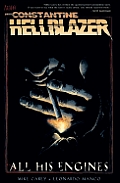
Drood by Dan Simmons
When I've been telling people about this book over the past few weeks, it usually goes something along the lines of, "Oh my god, it's about Charles Dickens and a train wreck and mesmerism and Egyptian death cults and this shadowy, nefarious creature named Drood, and the whole thing is narrated by an unhinged, laudanum-addicted Wilkie Collins! It's great!"
The weird thing is, people seem intrigued. Either that, or my slightly manic pitch just unnerves them enough to nod their heads and smile so I'll settle down. But I'm inclined to go with the former. After all, Drood's premise is pretty irresistible.
Simmons extrapolates a fantastic and, at times, very frightening tale from true events in the lives of Charles Dickens and his friend, Wilkie Collins, particularly Dickens's last years. On June 9, 1865, Dickens was riding by rail with his young mistress Ellen Ternan and her mother when their train crashed horrifically, killing 10 and injuring 40. After the crash, Dickens's writing fell off dramatically, his health suffered, and he spent much of his last five years giving strenuous reading tours in Great Britain and the United States.
Those are the facts, but Simmons introduces a sinister figure whose presence in the story gives a dark, eerie cast to Dickens's final years. This is Drood, whom Dickens first meets in the aftermath of the Staplehurst crash. Along with Dickens, Drood is seen giving aid to the wounded... or perhaps not. Afterward, Dickens becomes obsessed with Drood, venturing into London's darkest corners, sewers, crypts, opium dens, pursuing danger, courting death, and more often than not, dragging along his good friend, Wilkie Collins.
 Though lesser known, Collins was a writer and frequent collaborator of Dickens's (and his two masterpieces, The Lady in White and The Moonstone have experienced a resurgence in popularity in recent years). Collins flouted convention, living openly with one mistress, while fathering three children with another. He also suffered from a number of health problems, which he self-medicated with huge amounts of laudanum. A tincture of opium meant to be ingested a few drops at a time, Collins drank the stuff by the glassful, which sometimes resulted in hallucinations (Collins claimed he saw, among other things, recurring visions of his own double as well as a green-skinned woman with tusks).
Though lesser known, Collins was a writer and frequent collaborator of Dickens's (and his two masterpieces, The Lady in White and The Moonstone have experienced a resurgence in popularity in recent years). Collins flouted convention, living openly with one mistress, while fathering three children with another. He also suffered from a number of health problems, which he self-medicated with huge amounts of laudanum. A tincture of opium meant to be ingested a few drops at a time, Collins drank the stuff by the glassful, which sometimes resulted in hallucinations (Collins claimed he saw, among other things, recurring visions of his own double as well as a green-skinned woman with tusks).In the genius stroke of the novel, Simmons makes this hallucinating, drug-addled, perpetual second fiddle the story's narrator. Jealous, paranoid, and particularly susceptible to the dark allure of Drood, Collins is the perfect voice for this surreal story. As his confessions become more shocking, and Drood's endgame becomes clear, the reader gradually becomes aware of exactly how unreliable a narrator Collins really is. What's true about his tale and what's not? Simmons leaves that all maddeningly, deliciously up in the air.
At nearly 800 pages, Drood is something of an undertaking, but fear not. It's also packed with action, scandal, devilry, and what Brady likes to call high-grade nightmare fuel - 800 pages are rarely this much fun.
Also, I should mention that if this book sounds at all interesting to you, you might enjoy this episode of Doctor Who (a different, but somehow not all that different take on Dicken's last days).









